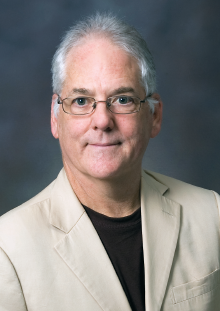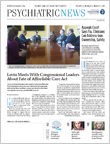The American Association of Community Psychiatrists (AACP) has approved a position statement asserting that climate change poses significant threats to public health, including mental health.
The statement, adopted last month by the AACP Board of Trustees, further asserts that psychiatrists are “uniquely positioned to help reduce barriers to addressing climate change, such as denial, hopelessness, and behavioral passivity, and to enhance efforts to communicate the public health and mental health risks of climate change through mechanisms that result in sustained behavioral change.” (See box for complete text of the AACP statement.)
“As community psychiatrists, we tend to view our work through two primary lenses,” said AACP President Michael Flaum, M.D. “One is a population health lens, thinking about the health of communities; and the other focuses on the most vulnerable individuals in that community. We feel that from both of these perspectives, the instability that can be expected from the direct and indirect effects of climate change, including the consequences of increasingly frequent and severe climate-related disasters, demands our immediate attention. We want to be proactive about this, rather than responding to each Katrina or Sandy as if they were not anticipatable.”
The position statement was brought to the AACP by an informal but growing group of psychiatrists calling themselves the Climate Psychiatry Alliance. The group is advocating for a similar position statement to be adopted by APA.
Founding members include psychiatrists Robin Cooper, M.D., Elizabeth Haase, M.D., Steven Moffic, M.D., and Lise van Susteren, M.D. The mission of the alliance, according to the group’s mission statement, is “to inform the profession and the public about the urgent risks of climate change and the profound impacts on mental health and well-being caused by climate disruption.”
Pollack told Psychiatric News that the group is in the early stages of development, with construction of a website still in progress. “The list serve for the monthly conference calls that we have been having is around 35, but includes people from all over the country and from all types of professional settings—university, residents, private psychotherapy practice, mind-body medicine, and the community/public sector,” he said. “I suspect that we will be growing fairly quickly, given the burgeoning interest in the topic.”
Members of the alliance are presenting a workshop on climate change and its importance to mental health at APA’s 2017 Annual Meeting in San Diego. The session is titled “Disaster Psychiatry: Current Needs in Managing Climate Change.”
Pollack also highlighted a recent conference on health and climate change that was sponsored by the Centers for Disease Control and Prevention and included van Susteren.
The group is becoming active on many levels. Pollack said the alliance is preparing to circulate a petition to persuade the various organizations involved with health professional training, assessment, or certification/licensure to include content on climate change, its relevance as a social determinant of health, and its impacts on public and mental health.
“A film is in the works that very beautifully addresses the impact on humans, especially children,” he said. “Several groups are focusing on mind-body medicine approaches and meditation as interventions that may help people to adapt to a rapidly and dramatically changing environment and extreme weather events so that they can be positive participants in the efforts to mitigate and reverse some of the environmental changes.”
With all that psychiatry has on its plate—access to care, reimbursement issues, continued insurance discrimination (in spite of the federal parity law)—why should psychiatrists be concerned about climate change?
Pollack and others who spoke with Psychiatric News said that on the most immediate level, climate change can have a direct impact on patient health and mental health.
Haase told Psychiatric News that extreme heat is likely to be most dangerous for low-income individuals, including those with severe and persistent mental illness. “The people most likely to die in a heat wave are old people alone in apartments without air conditioning who don’t call someone or don’t have a social network to care for them,” Haase said. “These are the conditions in which many of our patients with severe mental illness may live.”
Haase is an associate professor of psychiatry at the University of Nevada, Reno, School of Medicine.
Robin Cooper, M.D., an assistant clinical professor of psychiatry at the University of California, San Francisco, agreed. “Climate change has a direct impact on management of posttraumatic stress and depression associated with displacement or death of family members resulting from extreme weather events,” she said. “More generally, we believe that climate and climate change should be regarded as one of the social determinants of health. The psychological impact of climate change is especially significant for children growing up in a society where the basic sense of security is impaired. There are profound effects on development for children who wonder, ‘Will there be a world when I grow up?’ ”
Beyond direct patient care, Pollack and others emphasized that psychiatrists can help address the helplessness and passivity that may keep people from acting and help support what he and others said is climate-change denial.
“We can and should be the professionals who can say to people that we are falling prey to a collective, maladaptive psychological defense mechanism of denial that we are using to protect ourselves from anxiety and distress, but which ultimately does not serve our best interest,” Pollack said. ■
APA members interested in the Climate Psychiatry Alliance can email Cooper at
[email protected] or van Susteren at
[email protected]. Use “CPA” in the subject line. The Annual Meeting session “Disaster Psychiatry: Current Needs in Managing Climate Change” will be held Monday, May 22, at 10 a.m. in the San Diego Convention Center.

